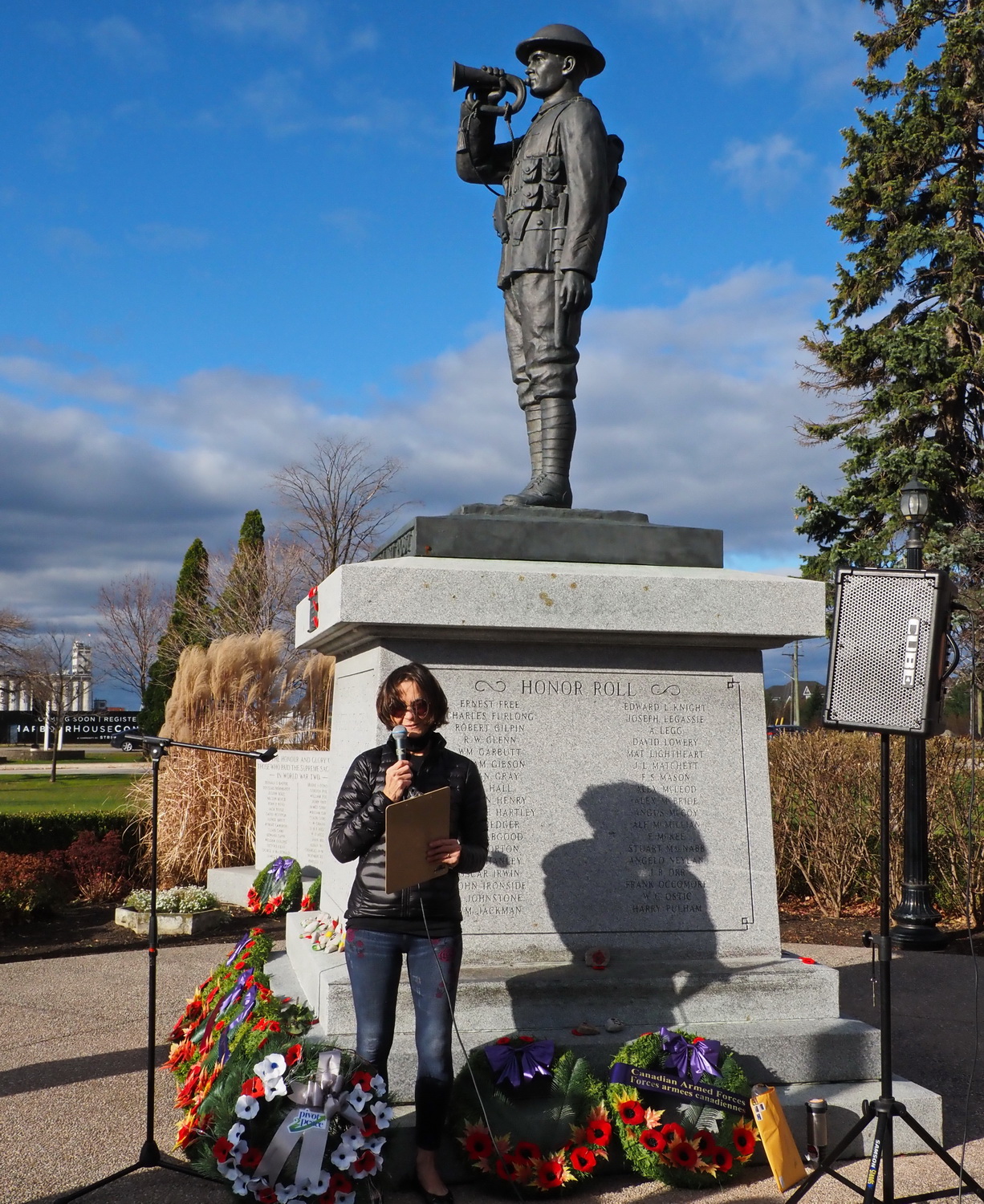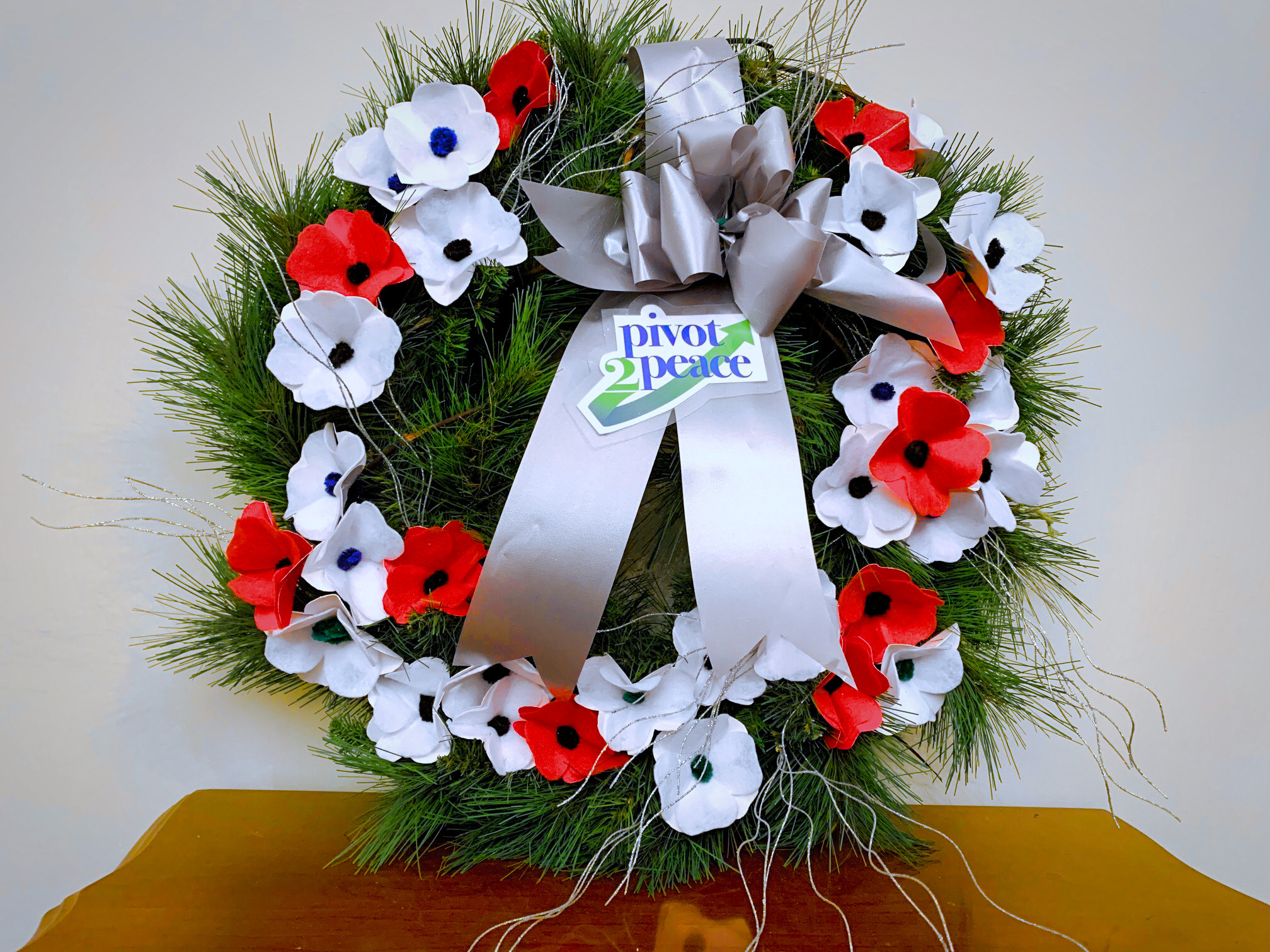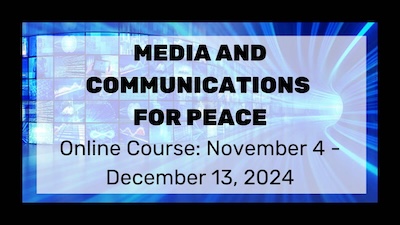
By Helen Peacock, World BEYOND War, South Georgian Bay, Canada, November 13, 2020
Remarks delivered on November 11th:
On this day, 75 years ago, a peace treaty was signed ending WWII, and ever since, on this day, we remember and honour the millions of soldiers and civilians who died in World Wars I and II; and the millions and millions more who died, or had their lives destroyed, in the over 250 wars since WWII. But remembering those who died is not enough.
We must also take this day to affirm our commitment to Peace. Nov 11 was originally called Armistice Day – a day meant to celebrate Peace. We forget that don’t we? Today I read the Globe and Mail, cover to cover Eleven pages talked about Remembrance, but I did not find one mention of the word Peace.
Yes, we want to honor the memory of those who died. But let us not forget that war is a tragedy, a tragedy that we do not want to glorify in our movies and in our history books and in our monuments and in our museums and on our Remembrance Days. As we go forward it is our desire for Peace that we want to hold close to our hearts and it is Peace that we want to take every opportunity to celebrate.
When people shrug and say “war is human nature” or “war is inevitable”, we must tell them NO – conflict may be inevitable but using War to resolve it is a Choice. We can choose differently if we think differently.
Did you know that the countries most likely to choose war are those with the biggest investment in the military. They don’t know anything else other than militarism. To paraphrase Abraham Maslow, “When all you have is a gun, everything looks like a reason to use it”. We can no longer look the other way and allow this to happen. There are always other options.
When my Uncle Fletcher died in his 80s, my Dad, younger by two years, spoke at his memorial. To my utter astonishment Dad began to talk, quite wistfully, about WWII. Apparently, he and Uncle Fletcher had signed up together, and been rejected together, because of poor eyesight.
But unbeknownst to my Dad, my Uncle Fletcher went away, memorized the eye chart and then successfully enlisted. He was sent to fight in Italy, and did not come back the same person. He had been damaged – we all knew that. But it was clear to me, as Dad spoke, that he did not think that he had been the lucky one. Uncle Fletcher was a hero, and Dad had somehow lost out on the glory.
This is the thinking we must change. There is nothing glamorous about war. On page 18 of today’s Globe a veteran describes the invasion of Italy, in which my uncle fought, “The tanks, the machine guns, the fire… It was Hell”.
So today, as we honor the millions who have died in war, let us also affirm our commitment to choose PEACE. We can do better if we know better.
DEDICATION
With the red poppy, we honor the more than 2,300,000 Canadians who have served in the military throughout our nation’s history and the more than 118,000 who made the ultimate sacrifice.
With the white poppy, we remember those who have served in our military AND the millions of civilians who have died in war, the millions of children who have been orphaned by war, the millions of refugees who have been displaced from their homes by war, and the toxic environmental damage of war. We commit to peace, always peace, and to questioning Canadian cultural habits, conscious or otherwise, to glamorize or celebrate war.
May this red and white wreath symbolize all of our hopes for a safer and more peaceful world.









